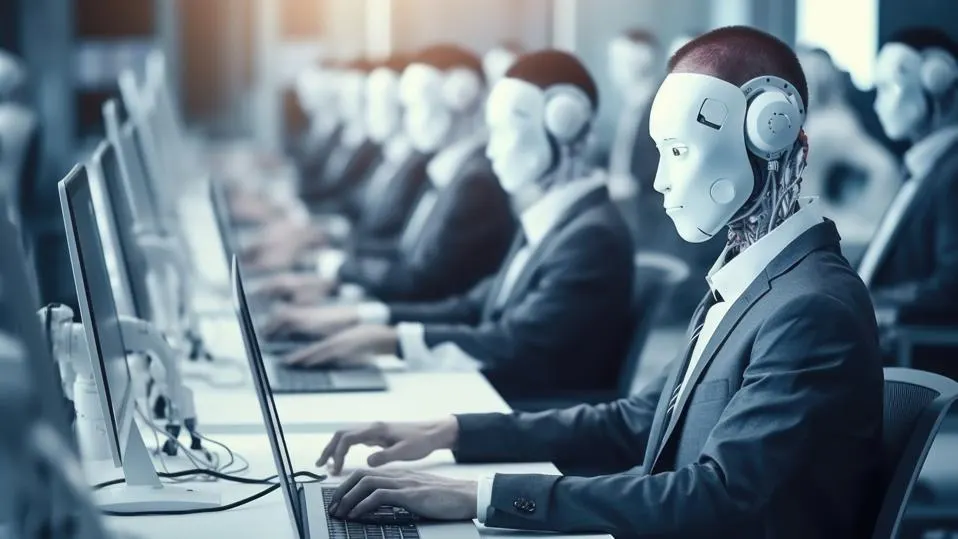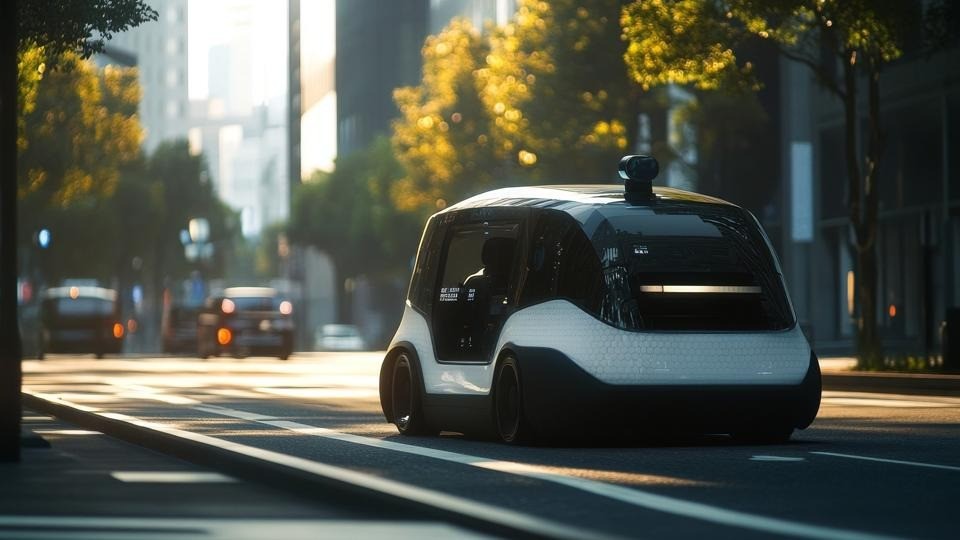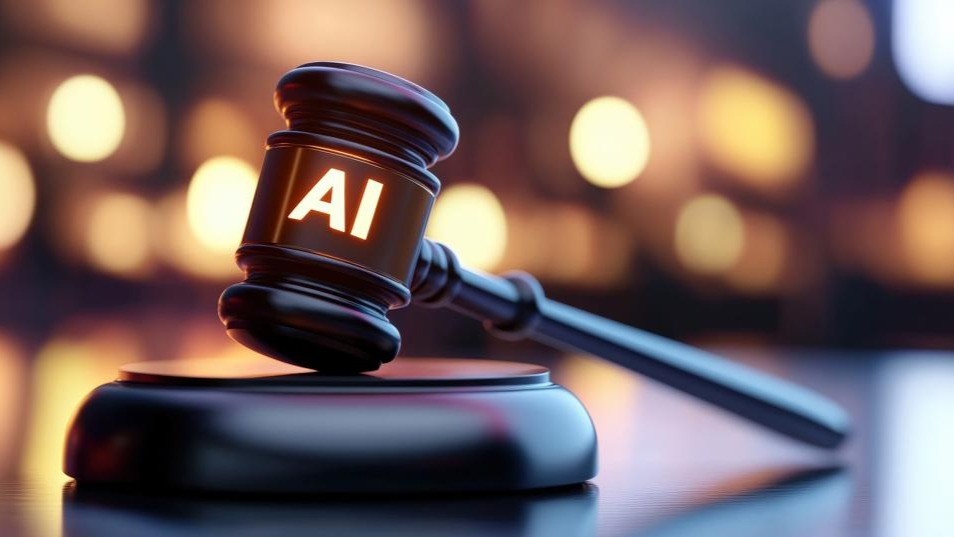Hype Or Reality: Will AI Really Take Over Your Job?
28 May 2024
It’s clear to me that AI is going to have a hugely transformative impact on the way we live, work and play. But it’s also clear that there’s a huge amount of hype, misunderstanding and misinformation around the subject.
This isn’t surprising given the amount of money on the table – AI is forecast to add up to $15.7 trillion to global GDP by 2030, and no one wants to miss out on their slice of the pie.
This means it’s important to be able to distinguish between realistic projections and marketing buzz.
So following on from this piece on “AI washing”, here I’m going to look at what the real impact of AI is going to be on jobs. Are we on the cusp of an era where robots and super-smart software will take on all the mundane, difficult and dirty jobs we don’t want to do, leaving us free to live lives of leisure and relaxation?
Or are the darker predictions that AI will make us redundant, leading to widespread unemployment and social unrest closer to reality? Let’s take a look.

Automation Or Augmentation?
Experts predict that the impact of AI and automation on the job market will be significant – according to the WEF, 85 million jobs will be displaced. However, it also believes that 97 million new jobs will be created by the AI revolution.
The impact of AI on jobs will take two forms – automation and augmentation.
Simple, routine tasks such as data entry or solving basic customer service inquiries will largely be automated. McKinsey predicts that up to 45 percent of work activities can be automated in this way.
When it comes to more complex tasks, the role of AI will be to augment human skills. For example, it will help healthcare professionals to analyze medical images and patient data, and lawyers will use it to quickly summarize documents and identify relevant information and arguments.
Understanding this balance between automation and augmentation is crucial to understanding the impact that AI will have on jobs in the future. Getting it right will lead to more efficient workflows, reducing the time that humans need to spend on manual, repetitive tasks and freeing them up to spend more time being creative and solving complex problems.
Inevitably this will lead to changes in the workforce, as people with the ability to work alongside machines, or carry out tasks that machines still can’t do, become increasingly valuable.
This means that those in roles that are reliant on human ingenuity are less likely to find themselves being replaced by machines.
More manual, repetitive jobs, however, are clearly at greater risk. But that doesn’t mean it’s all doom and gloom.
While warehouse workers may find themselves threatened with replacement by robots, opportunities will emerge for people capable of taking up strategic planning roles in logistics. And entry-level customer service workers facing redundancy due to chatbots will have the chance to take up more specialized roles, handling complex or sensitive customer problems.
AI will still have a part to play in the day-to-day operations of both of these new jobs, but its role will be to augment rather than automate and replace.
Two Potential Futures
In the introduction I mentioned two projections – one optimistic and one pessimistic – of the way AI’s effect on jobs could impact society.
In one possible future, AI takes over all of the mundane, menial and boring chores, leaving humans free to engage in creative, fulfilling and ultimately rewarding elements of their work. This leads to a society where we are all happier, more productive and more prosperous.
In the other, those whose roles are displaced by AI find it difficult to transition into the more rewarding roles, ultimately becoming unemployed or under-employed. This could exacerbate existing inequalities, strain social support systems and disrupt society in many unpleasant ways.
In reality, the outcome will likely fall between these two extremes.
If companies take the social implications of widespread automation into account, rather than simply focusing on potential efficiency gains, it’s more likely that harmful effects will be mitigated.
This will involve assessing the likely impact of AI and automation on workforces, and putting measures in place to help workers transition into the more highly-skilled, human-focused roles that will be needed.
Initiating programs for retraining and reskilling will be an important part of this.
And governments will have a role to play in this, too, with a responsibility to create legislation and frameworks that will support workers during the transition to an AI-powered economy.
Preparing For The Future Of Work
Of course, as individuals, we also have to take responsibility for shaping the way AI will impact our jobs and, ultimately, our lives.
This means proactively preparing for the changes that lie ahead. Developing our human, “soft” skills – problem solving, creative thinking, communication and so on – will make us more ready to transition into future-proof roles that will inevitably emerge.
Continuous, life-long learning will become increasingly important, too, meaning we are more likely to be able to adapt in sync with a shifting workplace landscape. If employers aren’t willing to help with this, we can take advantage of online courses, tutorials and certifications to broaden our knowledge and expertise.
Building adaptability and resilience to change will be vital in navigating the future of work.
Overall, the rise of AI and its inevitable impact on the job market brings undeniably worrying challenges but also exciting opportunities. The actions taken by businesses, governments and individuals today will determine the true impact of automation on jobs and indeed, its wider impact on society. By striving for continuous improvement we can increase our chances of achieving a happy and rewarding outcome.
Related Articles
Flying Taxis And Self-Driving Trucks Arrive In 2026: 6 Transport Trends To Watch
By now, “smart” versions exist of just about every home appliance, gadget and gizmos we can think of. However, manufacturers continue[...]
Technology in Action: My Key Takeaways on How AI and Quantum Are Accelerating Global Transformation
By now, “smart” versions exist of just about every home appliance, gadget and gizmos we can think of. However, manufacturers continue[...]
The 10 Biggest Consumer Technology Trends Of 2026
By now, “smart” versions exist of just about every home appliance, gadget and gizmos we can think of. However, manufacturers continue[...]
8 AI Ethics Trends That Will Redefine Trust And Accountability In 2026
By now, “smart” versions exist of just about every home appliance, gadget and gizmos we can think of. However, manufacturers continue[...]
The 7 Banking And Fintech Trends That Will Define 2026
By now, “smart” versions exist of just about every home appliance, gadget and gizmos we can think of. However, manufacturers continue[...]
The 8 Biggest Healthcare Technology Trends To Watch In 2026
By now, “smart” versions exist of just about every home appliance, gadget and gizmos we can think of. However, manufacturers continue[...]
Sign up to Stay in Touch!
Bernard Marr is a world-renowned futurist, influencer and thought leader in the fields of business and technology, with a passion for using technology for the good of humanity.
He is a best-selling author of over 20 books, writes a regular column for Forbes and advises and coaches many of the world’s best-known organisations.
He has a combined following of 4 million people across his social media channels and newsletters and was ranked by LinkedIn as one of the top 5 business influencers in the world.
Bernard’s latest book is ‘Generative AI in Practice’.










Social Media